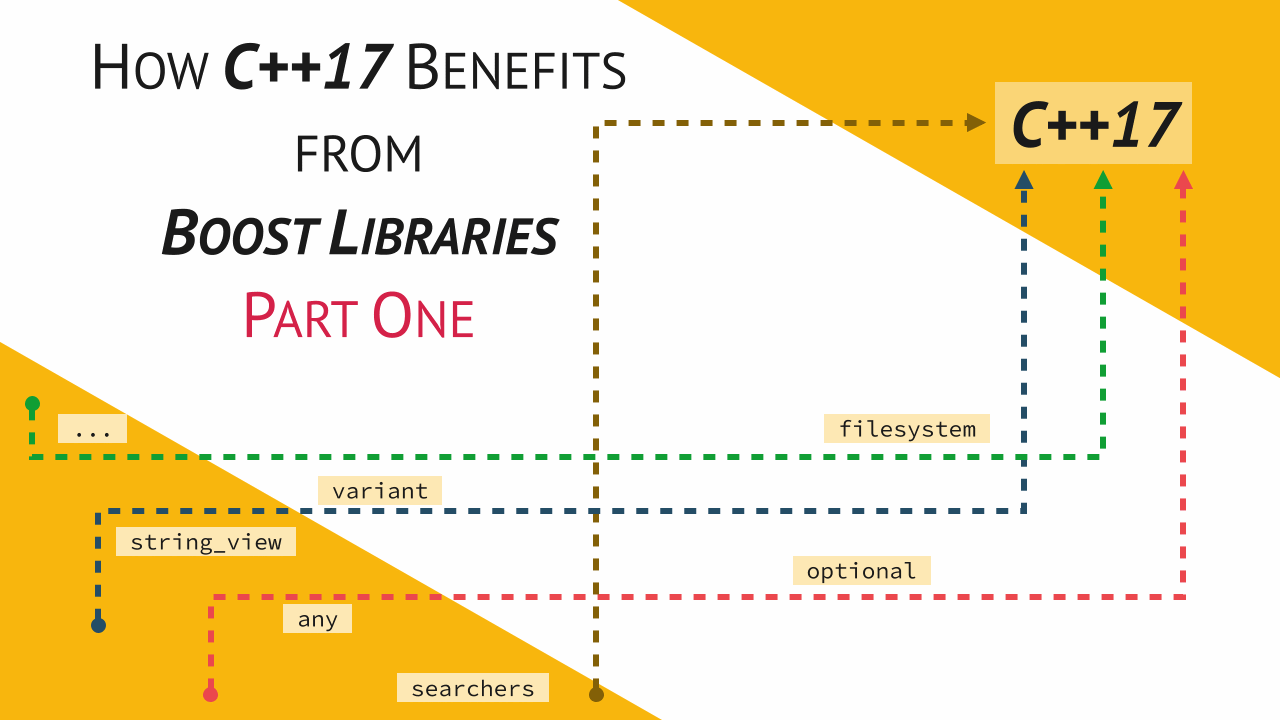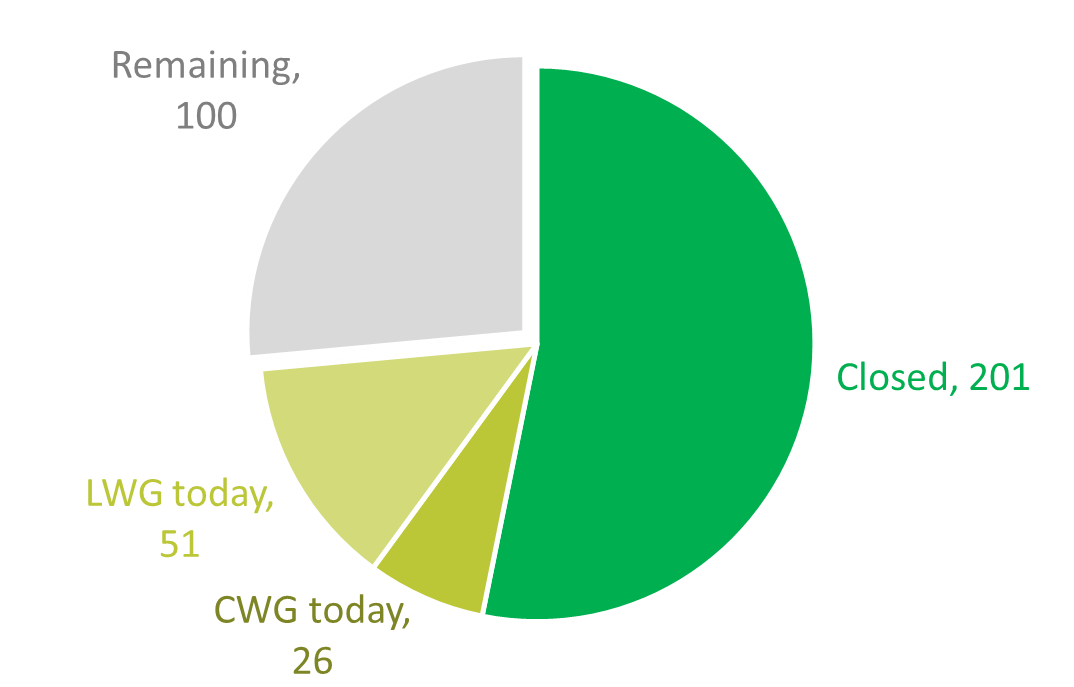How C++17 Benefits from Boost Libraries, Part One--Bartlomiej Filipek
 Did you know?
Did you know?
How C++17 Benefits from Boost Libraries, Part One
by Bartlomiej Filipek
From the article:
In today’s article, I’ll show you battle-tested features from the well-known Boost libraries that were adapted into C++17.
With the growing number of elements in the Standard Library, supported by experience from Boost you can write even more fluent C++ code.
Read on and learn about the cool things in C++...

 Just concluded today:
Just concluded today: